Search
Did you mean: Greek Fire?
Search Results
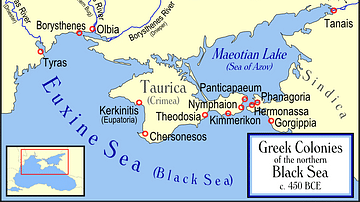
Image
Greek Colonies of the Northern Black Sea
Map showing Ancient Greek colonies on the northern coast of the Black Sea, c. 450 BC.
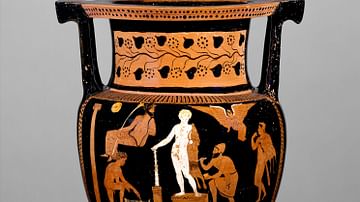
Image
Greek Vase Painting of an Artist at Work
Red-figure vase depicting an artist painting a statue of Hercules, identified by his club and lion-skin cape. Greek and Roman statues were frequently painted in Antiquity, to impart a more impressive and life-like appearance. Images of artists...
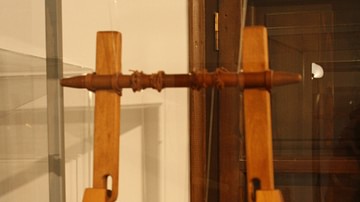
Image
Ancient Greek Forminx
A reconstruction of the forminx, a stringed instrument which was played to a singing accompaniment. (Museum of Ancient Greek Musical Instruments, Katakolon, Greece).
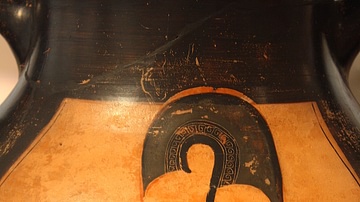
Image
Greek Helmet with Myrtle Leaves
A depiction of a Greek Corinthian helmet with myrtle leaves. From an Attic black-figure pottery vessel from Phalero, 575-550 BCE. (National Archaeological Museum, Athens)
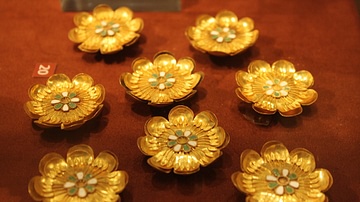
Image
Gold Rosettes for Ancient Greek Clothing
Gold and enamel rosettes used to decorate ancient Greek clothing. 4th century BCE.(National Archaeological Museum, Athens)
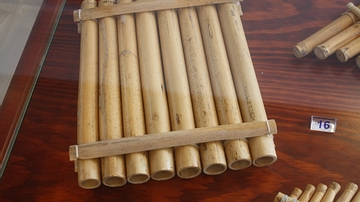
Image
Ancient Greek Panpipes
A modern reproduction of the most common form of panpipes played by the ancient Greeks (Museum of Ancient Greek Musical Instruments, Katakolon, Greece).

Image
The Nine Muses of Greek Mythology
An infographic depicting the nine Muses of Greek mythology. The Muses are a group of divine sisters who govern various aspects of creativity and intellectual pursuits. Originally, the ancient Greeks recognized three Muses: Melete, Mneme...
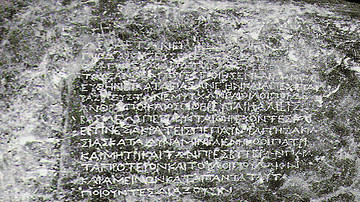
Image
Greek and Aramaic inscriptions by king Ashoka
Bilingual (Greek and Aramaic) inscriptions by king Ashoka at Kandahar (Shar-i-kuna). (3rd century BCE). Preserved at Kabul Museum. Today disappeared. Two-dimensional inscription. Greek (transliteration) 1. δέκα ἐτῶν πληρηεὺς...
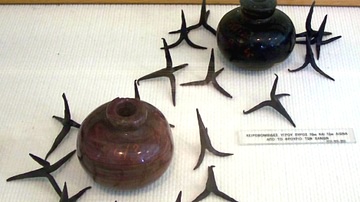
Image
Greek Fire Grenades
Two clay grenades which were designed to be filled with the flammable liquid known as Greek Fire and launched at the enemy. Greek Fire was first used in the Byzantine empire in 678 CE. These examples date to between the 10th and 12th century...
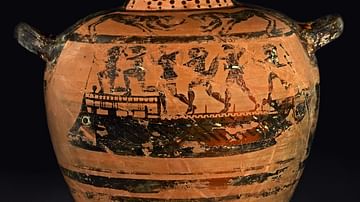
Image
Greek Bireme on an Etruscan Water Jar
Black-figure hydria from Vulci, Etruria, attributed to the Micali Painter, c. 510-500 BCE. The British Museum, London This Italiote reproduction of the Greek naval invasion of Troy based on the Iliad is shaped around a bireme (diiris...